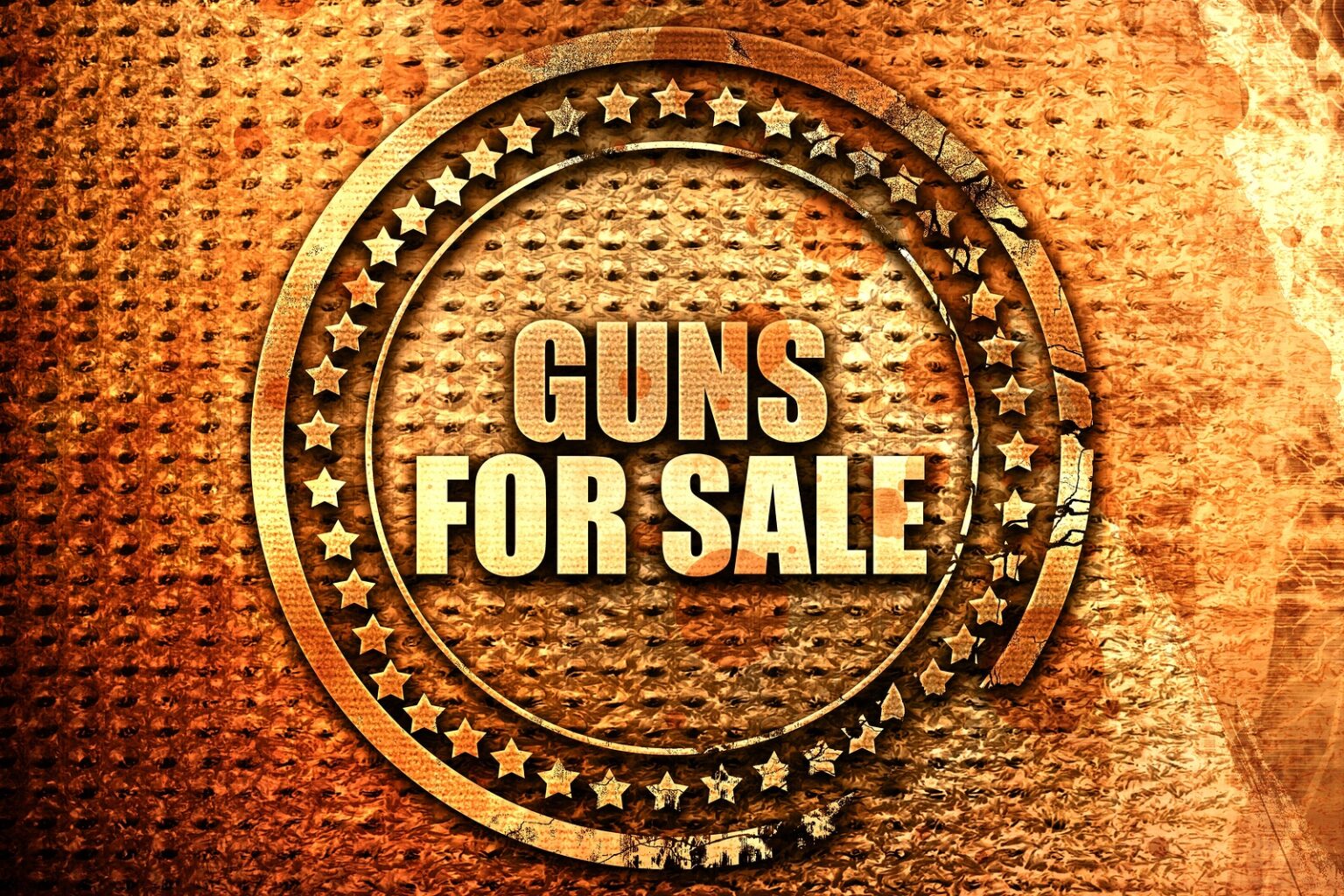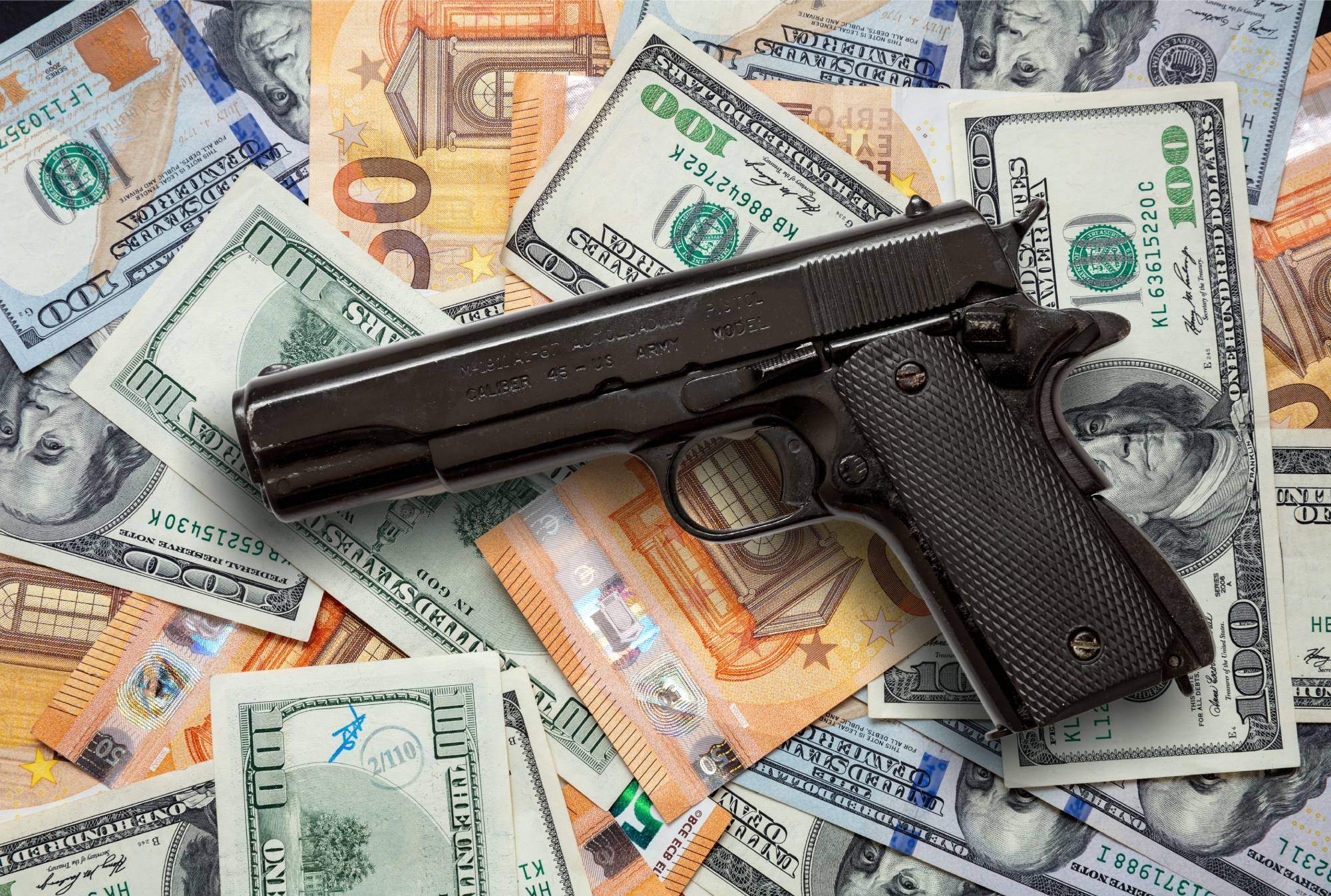Gun Trader Dallas: Navigating the complex world of firearm sales in the Dallas area requires understanding the legal landscape, online marketplaces, and crucial safety practices. This exploration delves into the intricacies of gun trading in Dallas, examining the regulations governing firearm transactions, the online presence of traders, and the vital role of safety protocols. We will also analyze the economic impact of this industry and explore community perspectives and concerns.
From the legal requirements for licensed dealers and private sellers to the various online platforms utilized by gun traders, we aim to provide a comprehensive overview. We will examine effective marketing strategies, safe handling practices, and the importance of background checks in ensuring responsible gun ownership. Furthermore, we will explore the economic contributions of the industry and address the diverse community opinions surrounding gun trading in Dallas.
Legality and Regulations of Gun Trading in Dallas
Firearm sales and transfers in Dallas, Texas, are governed by a complex interplay of federal and state laws. Understanding these regulations is crucial for both licensed dealers and private citizens involved in firearm transactions to ensure compliance and avoid potential legal repercussions. This section details the key legal aspects of gun trading within the city.
Federal and State Laws Governing Firearm Sales and Transfers
The sale and transfer of firearms in Dallas are subject to both federal laws, primarily enforced by the Bureau of Alcohol, Tobacco, Firearms and Explosives (ATF), and state laws, enforced by the Texas Department of Public Safety (DPS). Federal laws, such as the Gun Control Act of 1968, establish baseline requirements for licensed dealers, background checks, and prohibited persons.
Texas state laws add further regulations, including those concerning the carrying of firearms, waiting periods, and specific types of firearms. These regulations often overlap and must be considered concurrently. For example, while federal law requires a licensed dealer to conduct a background check through the National Instant Criminal Background Check System (NICS), Texas may have additional requirements for record-keeping or waiting periods.
Notice g n c near me for recommendations and other broad suggestions.
Licensing Requirements for Gun Dealers Operating in Dallas
To operate legally as a gun dealer in Dallas, individuals must obtain a Federal Firearms License (FFL) from the ATF. This involves a rigorous application process, including background checks, facility inspections, and adherence to strict record-keeping requirements. Texas also has its own licensing requirements for certain types of firearm businesses, which may include additional permits or registrations depending on the nature of the operation.
Failure to obtain and maintain the necessary licenses can lead to significant penalties, including fines and imprisonment. Furthermore, dealers must comply with all federal and state regulations regarding firearm storage, sales, and record-keeping.
Comparison of Legal Processes for Private Gun Sales versus Sales Through Licensed Dealers
Private gun sales in Texas are subject to fewer regulations than sales conducted through licensed dealers. While private sellers are not required to conduct NICS background checks, they are still prohibited from selling firearms to individuals known to be prohibited from possessing them under federal or state law. Licensed dealers, on the other hand, are required to conduct NICS background checks on all purchasers and maintain meticulous records of all transactions.
This difference in regulatory oversight highlights the increased legal responsibility and compliance requirements for licensed dealers compared to private sellers. A key distinction is that while private sellers face potential civil liabilities for illegal sales, licensed dealers face both civil and criminal penalties for non-compliance.
Summary of Relevant Laws, Regulations, Penalties, and Agencies
| Law Type | Specific Regulation | Penalties for Violation | Relevant Agencies |
|---|---|---|---|
| Federal (Gun Control Act of 1968) | Requirements for licensed dealers, background checks, prohibited persons | Fines, imprisonment, license revocation | Bureau of Alcohol, Tobacco, Firearms and Explosives (ATF) |
| Texas State Law | Carrying of firearms, waiting periods, specific firearm restrictions | Fines, imprisonment, license revocation | Texas Department of Public Safety (DPS) |
| Federal (NICS) | National Instant Criminal Background Check System requirements for licensed dealers | Fines, imprisonment, license revocation | Bureau of Alcohol, Tobacco, Firearms and Explosives (ATF), FBI |
| Texas State Law (Private Sales) | Prohibition of sales to prohibited persons | Civil liabilities, potential criminal charges | Texas Department of Public Safety (DPS), local law enforcement |
Online Presence of Dallas Gun Traders
The online landscape is crucial for Dallas gun traders, offering a significant avenue to reach a broad customer base and compete effectively. Successful traders leverage various digital platforms to showcase their inventory, build brand awareness, and engage with potential buyers. This includes dedicated websites, social media marketing, and online marketplaces. The strategies employed vary considerably depending on the size and type of business.Many Dallas gun traders maintain a robust online presence, utilizing a combination of strategies to maximize their reach and engagement.
Their websites often serve as the central hub for their online operations, providing detailed information about their inventory, services, and business policies. Social media platforms, such as Facebook, Instagram, and YouTube, are also frequently utilized to showcase products, engage with customers, and build community.
Website Features of Dallas Gun Traders
Dallas-based gun traders’ websites typically include key features designed to enhance the customer experience and facilitate transactions. These features often include high-quality images and detailed descriptions of firearms and related accessories. Many websites also incorporate online inventory systems, allowing customers to browse available items and check availability in real-time. Secure online payment processing capabilities are essential, along with clear information on shipping, returns, and other relevant policies.
Customer reviews and testimonials can also significantly enhance a website’s credibility and build trust. Finally, contact information, including phone numbers, email addresses, and physical store addresses (if applicable), is vital for customer service and inquiries.
Online Marketing Approaches of Different Gun Traders
Large retail gun stores in Dallas often invest significantly in professional website design and digital marketing campaigns. They may employ search engine optimization () techniques to improve their visibility in online search results, as well as paid advertising on platforms like Google Ads and social media. Their websites are usually feature-rich, offering advanced search filters, detailed product information, and integrated inventory management systems.
In contrast, smaller, independent dealers may rely more heavily on social media marketing and word-of-mouth referrals. Their online presence might be less sophisticated, but they often cultivate a strong personal connection with their customers through direct engagement and personalized service. This personalized approach can be a significant advantage in building customer loyalty.
Examples of Effective and Ineffective Online Marketing Practices
The success of online marketing for Dallas gun traders hinges on several key factors. Understanding these factors is crucial for effective strategy implementation.
Effective online marketing practices often include:
- High-quality product photography and detailed descriptions.
- Utilizing techniques to improve search engine rankings.
- Engaging with customers on social media platforms.
- Running targeted advertising campaigns.
- Building a user-friendly and informative website.
- Collecting and responding to customer reviews and testimonials.
Conversely, ineffective practices can include:
- Poor-quality product images and vague descriptions.
- Ignoring customer feedback and reviews.
- Lack of engagement on social media.
- Failing to optimize the website for search engines.
- Running generic, untargeted advertising campaigns.
- Ignoring mobile optimization, leading to a poor user experience on mobile devices.
Economic Impact of Gun Trading in Dallas: Gun Trader Dallas

The gun trading industry in Dallas, while potentially controversial, contributes significantly to the city’s economy through various direct and indirect channels. Understanding this economic impact requires examining the industry’s revenue generation, employment figures, and its relative size compared to other major sectors within the Dallas economy. This analysis will shed light on the multifaceted role gun trading plays in the city’s financial landscape.
Types of Jobs Supported by the Gun Trading Industry in Dallas
The gun trading industry in Dallas supports a diverse range of jobs, extending beyond simply the retail sales of firearms. These positions encompass various skill sets and experience levels, contributing to the overall employment landscape of the city. These roles include, but are not limited to, retail sales staff, gunsmiths, inventory managers, security personnel, marketing and advertising professionals, and administrative staff within gun stores and related businesses.
Furthermore, ancillary industries such as gun cleaning supplies manufacturers, training facilities, and ranges also benefit, creating additional employment opportunities.
Economic Contributions of the Gun Trading Industry to the Dallas Economy
The economic contributions of the gun trading industry in Dallas are multifaceted. Direct contributions include the revenue generated from sales of firearms, ammunition, accessories, and related services such as gunsmithing and cleaning. Indirect contributions stem from the supporting industries and the spending of employees within the industry, stimulating economic activity in related sectors like transportation, logistics, and real estate.
Estimating the precise financial contribution is challenging due to the lack of publicly available, comprehensive data specifically isolating gun trading revenue. However, considering the number of licensed gun dealers and the volume of firearms sales in the region, it’s reasonable to assume a substantial contribution to the city’s GDP. This contribution is further amplified by the ripple effect of economic activity generated by the industry’s employees and associated businesses.
Comparison of the Economic Impact of Gun Trading to Other Major Industries in Dallas
Directly comparing the economic impact of gun trading to other major industries in Dallas (such as technology, finance, and healthcare) presents a significant challenge due to data limitations. However, a qualitative comparison can be made. While the gun trading industry undoubtedly contributes to the local economy, its overall size and impact likely pale in comparison to the much larger and more established sectors like technology (which includes companies like Texas Instruments and AT&T) and the healthcare industry, which employs a significantly larger workforce.
Further research utilizing specialized economic databases would be necessary for a precise quantitative comparison.
Estimated Revenue Generated by Different Segments of the Dallas Gun Trading Market
The following bar chart describes the estimated revenue generated by different segments of the Dallas gun trading market. These figures are estimates based on industry reports and expert opinions, acknowledging the inherent limitations in obtaining precise data. The chart uses a scale of millions of dollars for clarity.Bar Chart Description:The horizontal axis represents the different segments of the Dallas gun trading market: Handguns, Rifles, Shotguns, Ammunition, Accessories (including scopes, holsters, etc.), and Services (including gunsmithing and training).
The vertical axis represents estimated annual revenue in millions of dollars.* Handguns: The bar representing handgun sales is the tallest, estimated at $30 million, reflecting the high demand for handguns in the region.* Rifles: The rifle sales bar is significantly shorter than the handgun bar, reaching approximately $15 million, reflecting lower overall sales compared to handguns.* Shotguns: Shotgun sales show a relatively smaller market share, with estimated revenue at around $8 million.* Ammunition: The ammunition segment shows a strong revenue stream, estimated at $12 million, highlighting the consistent demand for ammunition among gun owners.* Accessories: The bar for accessories reaches $10 million, indicating a considerable market for related products.* Services: The services segment, including gunsmithing and training, shows an estimated revenue of $5 million, representing a smaller but still significant contribution to the overall market.This chart provides a visual representation of the relative contribution of each segment to the overall revenue generated by the gun trading industry in Dallas.
It is crucial to understand that these are estimations and the actual figures may vary.
Community Perceptions and Concerns Regarding Gun Trading in Dallas

Public opinion on gun trading in Dallas is complex and multifaceted, varying significantly across different demographic groups. Understanding these diverse perspectives is crucial for fostering constructive dialogue and implementing effective policies related to firearm safety and responsible gun ownership.
Prevalent Public Opinions on Gun Trading
Dallas residents hold a wide range of views on gun trading, influenced by factors such as personal experiences, political affiliations, and cultural backgrounds. Some strongly support the right to own firearms and engage in legal gun trading, emphasizing self-defense and the Second Amendment. Others express concerns about the potential for gun violence and advocate for stricter regulations on gun sales, including background checks and limitations on certain types of firearms.
The age and socioeconomic status of residents also appear to correlate with their views, with older residents often expressing more conservative viewpoints and younger residents holding more liberal stances. Research into these correlations, however, requires further investigation to establish definitive causal links.
Community Concerns about Gun Violence and Firearm Accessibility
A significant concern among Dallas residents is the prevalence of gun violence, particularly in certain neighborhoods. Easy access to firearms, including through informal gun trading channels, is often cited as a contributing factor. The fear of accidental shootings, suicides involving firearms, and the potential for guns to fall into the wrong hands are frequently voiced anxieties. These concerns are often amplified by high-profile incidents of gun violence reported in local news media, further fueling public apprehension.
The impact of these anxieties on community safety and well-being cannot be understated.
Community Initiatives Promoting Gun Safety and Responsible Gun Ownership
Several community initiatives in Dallas are working to promote gun safety and responsible gun ownership. These include educational programs that teach safe gun handling practices, storage techniques, and the importance of responsible firearm ownership. Many organizations also advocate for stricter background checks and other regulations aimed at preventing firearms from falling into the hands of individuals who may misuse them.
Furthermore, some community groups focus on violence prevention programs that address the root causes of gun violence, such as poverty, lack of opportunity, and mental health issues. These initiatives highlight the commitment of various community stakeholders to improve gun safety within the city.
Comparative Perspectives on Gun Control and Gun Trading in Dallas, Gun trader dallas
| Community Group | Perspective on Gun Control | Perspective on Gun Trading |
|---|---|---|
| Supporters of the Second Amendment | Believe in the right to bear arms with minimal government regulation. Often oppose stricter background checks or limitations on firearm types. | Generally support legal gun trading, viewing it as a legitimate exercise of their Second Amendment rights. May advocate for deregulation of the gun market. |
| Gun Violence Prevention Advocates | Advocate for stricter gun control measures, including expanded background checks, bans on certain types of firearms, and red flag laws. | Express concerns about the potential for illegal gun trading to contribute to gun violence and advocate for stricter regulations on all gun sales, including those conducted privately. |
| Law Enforcement Officials | Support measures that enhance public safety, often including stricter background checks and regulations on gun sales, but also acknowledge the Second Amendment rights of law-abiding citizens. | Focus on preventing illegal gun trading and working to trace firearms used in crimes. Their perspective often balances public safety concerns with respect for legal gun ownership. |
Understanding the multifaceted world of gun trading in Dallas requires a balanced perspective, encompassing legal compliance, safe practices, economic impact, and community considerations. By examining the regulatory framework, online presence, safety protocols, and community perspectives, we hope to provide a comprehensive understanding of this significant industry within the Dallas metropolitan area. Responsible gun ownership and adherence to the law are paramount for the safety and well-being of all residents.



